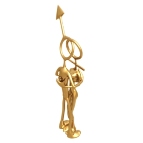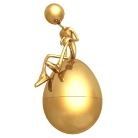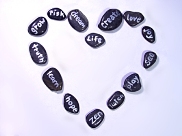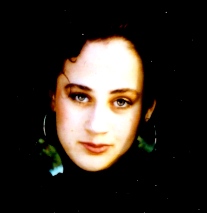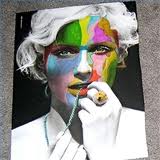 The other day, as I was waiting to be seated at a restaurant, I overheard a conversation between two friends. One asked the other if she believed in astrology. I wanted to jump in and give my “no-need-to-believe” lecture, but instead, I bit my tongue and continued to listen.
The other day, as I was waiting to be seated at a restaurant, I overheard a conversation between two friends. One asked the other if she believed in astrology. I wanted to jump in and give my “no-need-to-believe” lecture, but instead, I bit my tongue and continued to listen.
The friend said that she did not believe in astrology because none of the predictions ever come true. Once again, I wanted to bud in and tell her that this is happening because she’s seeking the wrong type of astrological advice, but I kept quiet. I was a bit saddened by the girl’s comment because I realized what a great disservice it is to allow astrology to be used as an entertainment tool rather than emphasizing it as an authentic therapeutic instrument. I’m all for entertainment at the right time and place. But when it comes to such an important subject as astrology, it would be better to combine entertainment with deep inquiry and understanding.
Unfortunately, this is not always the case. Many practitioners of astrology still attempt to impress with their prophetic powers, and as a result they turn this symbolic language related to objective observation into a pseudo-religious discipline demanding faith. That’s largely why astrology no longer commands the respect it once did. That said, here are some thoughts on the practice of astrology and its potential value as a healing profession.
First, you don’t have to believe in astrology in order to benefit from its insights. If you listen to the interpretation of your birth chart with an open mind and heart, and test the words against your own reality, you will know if what is being said is true for you or not. Let yourself come to your own conclusions.
Second, the astrological practice I’m referring to is psychologically-based and humanistic in orientation. Its practitioners probe, in the same way as other mental health professionals, the psychological and spiritual makeup of individuals in order to promote understanding, growth and development.
Third, predictive techniques are interesting to explore and experiment with, but they do little to guide the unfolding of a human soul. When concrete statements are made regarding a person’s destiny or identity, free will and universal kismet are removed from the equation. This practice might seem harmless but over the years it has done tremendous damage. The reason is that the subconscious mind cannot tell the difference between true and false statements. Therefore telling an impressionable individual that something will or will not happen, or that they’re this and not that, could hurt the person for life by encouraging them to live out someone else’s prophecy.
I’d like you to bear two things in mind in seeking astrological advice. The first is to ask the astrologer you contact about the type of astrology he or she practices. Make sure that the response feels right for you in terms of the answers you seek. The second is to remember that, for the most part, astrologers are not psychics. So don’t book a session hoping to come out with a clear life-plan for the next forty years. Use the session to review your personal cycles and see what energies will be influencing specific areas of your life in the near future. You can also explore thoughts and feelings regarding career, family, love, and other issues in your life. But don’t expect to be told what to do or what will happen. If you go into your session with a mindset of equal exchange, then it’s highly likely you will find the insight that you seek.
P.S. If you have any questions, or need a recommendation, please feel free to contact me.


